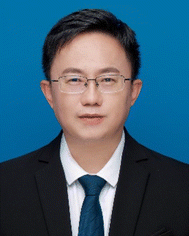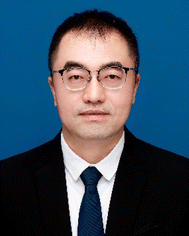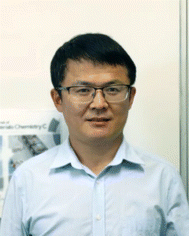Celebrating 25 years of the Key Laboratory for Special Functional Materials at Henan University
Feng
Bai
 *a,
Gang
Cheng
*a,
Gang
Cheng
 *a,
Zuliang
Du
*a,
Zuliang
Du
 *a and
Guohua
Jia
*a and
Guohua
Jia
 *b
*b
aKey Laboratory for Special Functional Materials of Ministry of Education, National & Local Joint Engineering Research Center for High-efficiency Display and Lighting Technology, Henan University, Kaifeng, China. E-mail: baifengsun@126.com; chenggang@henu.edu.cn; zld@henu.edu.cn
bSchool of Molecular and Life Sciences, Curtin University, Bentley, WA 6102, Australia. E-mail: guohua.jia@curtin.edu.au
Abstract
An introduction to the Nanoscale themed collection organised in celebration of the 25th anniversary of the Key Laboratory for Special Functional Materials at Henan University in China, featuring research in all aspects of nanoscience and nanotechnology.
Founded in 1998, the Key Laboratory for Special Functional Materials is one of the excellent key laboratories of the Ministry of Education, China. After 25 years of development, the Key Laboratory has become a comprehensive research base for functional nanomaterials, electronic/optoelectronic nano-devices, and energy devices, and has developed a variety of technologies including photoelectric nano-devices, luminescent quantum dot displays and new energy resources. Specially, some of the key performance indicators of blue-emitting quantum dot light-emitting diodes (QLEDs) and nano-devices are at the leading level in the world. The Key Laboratory for Special Functional Materials currently has more than 100 employees including one Zhongyuan Scholar, five Outstanding Young Scholars of China, 27 professors, and 23 associate professors.
This online collection of articles aims to showcase the breadth of high-quality work and the most recent research progress in a wide spectrum of nanoscience and nanotechnology by the current faculty members as well as alumni from this institute, and to foster collaborations between Henan University and institutions around the world.
The Key Laboratory for Special Functional Materials welcomes any type of cooperation from all domestic and international materials-related research institutions, and also welcomes scientists from around the world to join the laboratory.
This themed collection showcases many high-quality papers from current professors and alumni, including reviews, full papers and communications, highlighting the most recent progress in all branches of nanoscience and nanotechnology, ranging from the synthesis, self-assembly, characterization, modelling and simulation of nanomaterials, and their applications in light-emission and displays, sensing, catalysis, drug delivery, and environment-based applications.
Read the collection here: https://pubs.rsc.org/en/journals/articlecollectionlanding?sercode=nr&themeid=91b28e8a-6bcc-4113-b17d-86d6f874dfea.
We would like to thank the authors and reviewers who contributed to this themed collection. We also appreciate the editorial team at the Royal Society of Chemistry for their help and support in bringing this themed collection to press.
| This journal is © The Royal Society of Chemistry 2024 |




